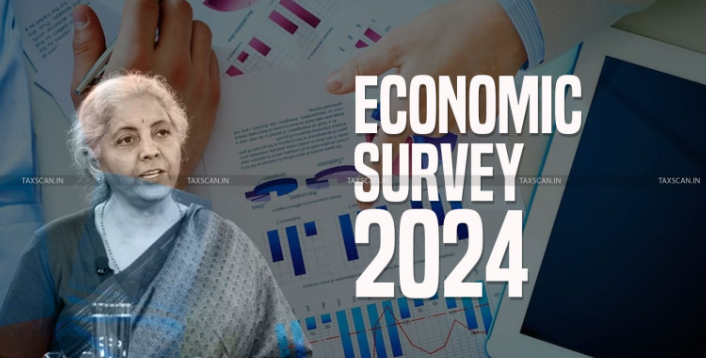A Candid Assessment: Economic Survey 2023-24 (GS Paper 3, Economy)

Introduction
The Economic Survey 2023-24, released by the finance ministry, provides a thorough and realistic evaluation of India's economic status and future prospects. This flagship document not only highlights the recovery from the pandemic but also delves into the various challenges facing the economy.
Private Sector Performance and Investment Trends
Economic Progress and Paradoxes
- The Survey documents the economic rebound from the pandemic while presenting a paradoxical situation.
- On one hand, the corporate sector is enjoying “excess profits” and banks are experiencing record-high interest margins.
- On the other hand, the economy is grappling with subdued private sector investments, sluggish growth in productive employment opportunities, and private consumption growing at a modest 4 percent.
Need for Private Sector Leadership
- The Survey emphasizes the need for the private sector to take the lead in investment.
- While public sector investments have sustained capital formation, the private sector has predominantly invested in “dwellings, other buildings, and structures” rather than in “machinery, equipment, and intellectual property.”
- This shift in focus is crucial for continued economic growth.
- The data indicates some positive trends, with capital formation expanding, albeit at a slower rate.
The Job Crisis: A Growing Concern
Job Creation Challenges
- The Survey highlights the severe job crisis that influenced recent national elections.
- To effectively address this issue, India needs to create 78.5 lakh jobs annually in the non-farm sector to accommodate new entrants into the labor market and those transitioning from agriculture.
- Current schemes such as the Production Linked Incentive (PLI) and Mudra loans are considered insufficient to meet this scale of employment generation.
- Additional measures are required to tackle this crisis.
Skill Gap Issues
- Another significant concern is the skill gap, with approximately half of college graduates being “deemed employable.”
- This disparity between education and job market requirements needs to be addressed to enhance employability and support job creation.
Pessimistic Outlook on External Stimuli
Challenges from the Global Landscape
- The Survey expresses caution about external factors that could hinder India's economic progress.
- It points out that India's goal of becoming Viksit Bharat (Developed India) by 2047 will be more challenging compared to China’s economic rise, due to the end of a favorable geopolitical environment and peak globalization.
Additional Threats
- The Survey also identifies threats such as climate change, global warming, and the rise of Artificial Intelligence, which are expected to create significant barriers to sustaining high growth rates.
- Overcoming these challenges will require a coordinated effort between Union and state governments and the private sector.
Conclusion
- The Economic Survey 2023-24 presents a comprehensive analysis of India’s current economic situation and future challenges.
- It outlines several policy measures and strategies to address these issues, emphasizing the need for increased private sector investment, effective job creation strategies, and adaptation to external threats.
- The critical question remains whether these insights and recommendations will translate into actionable policies in the upcoming Union Budget.
- The effectiveness of these measures will be essential in shaping India’s economic trajectory.


